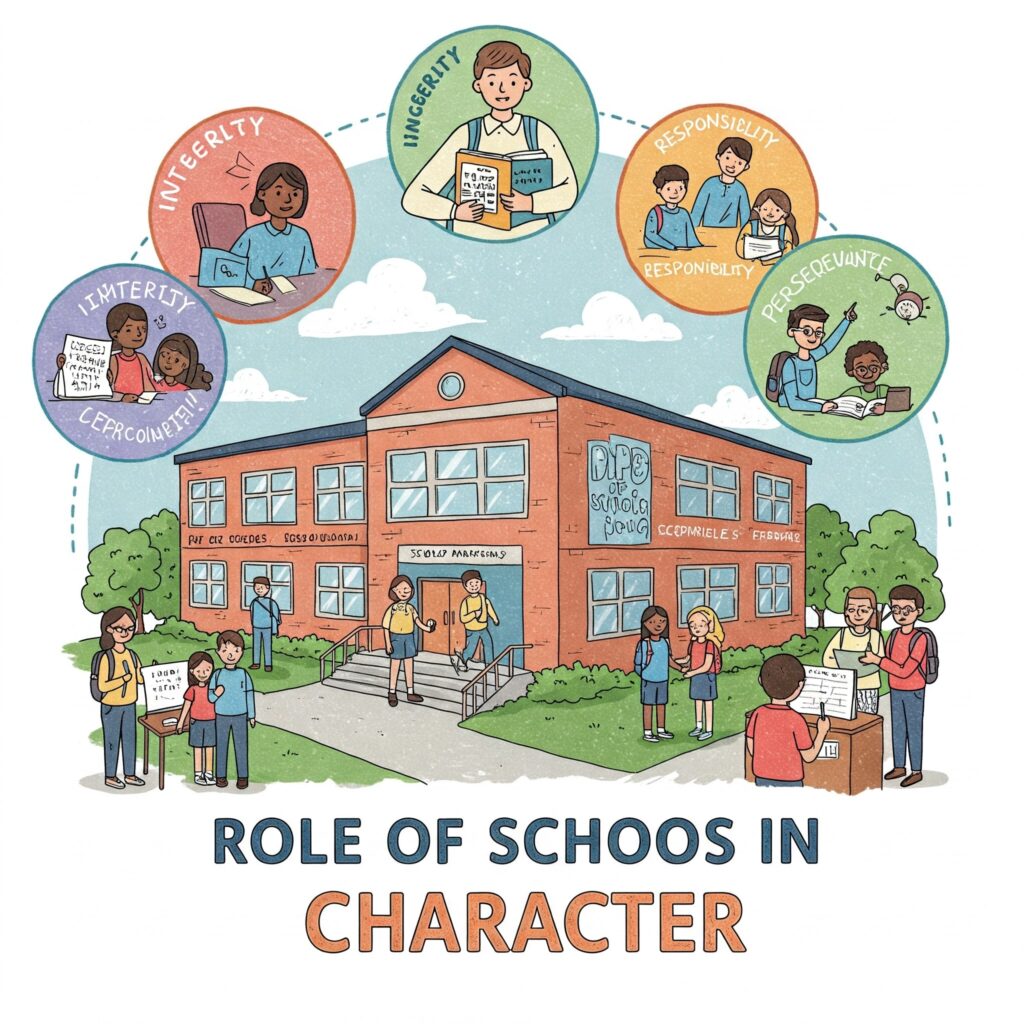Schools play a crucial role in shaping not just the academic abilities of students but also their character, values, and ethical foundations. Character development is an essential part of education, as it influences how students grow into responsible, empathetic, and morally strong individuals who contribute positively to society.
1. Instilling Core Values
Schools provide a structured environment where students learn values such as honesty, respect, responsibility, and kindness. Through lessons, storytelling, and classroom discussions, educators instill moral principles that help students develop a strong ethical foundation.
2. Encouraging Leadership and Responsibility
By participating in student councils, group projects, and extracurricular activities, students develop leadership skills and a sense of responsibility. These experiences teach them teamwork, decision-making, and accountability, shaping them into future leaders.
3. Promoting Social and Emotional Learning (SEL)
Schools incorporate Social and Emotional Learning programs to help students manage emotions, build healthy relationships, and make responsible decisions. SEL fosters empathy, resilience, and conflict resolution skills, preparing students to navigate real-world challenges.
4. Building a Culture of Respect and Inclusion
Diverse school environments teach students the importance of respecting different cultures, perspectives, and backgrounds. Through inclusive education and awareness programs, schools promote tolerance, unity, and social harmony.
5. Teaching Discipline and Self-Control
Discipline is a fundamental aspect of character development. Schools enforce rules, schedules, and codes of conduct that help students develop self-discipline, time management, and perseverance—qualities essential for personal and professional success.
6. Encouraging Community Service and Civic Responsibility
Many schools involve students in community service projects, environmental initiatives, and social welfare activities. These experiences cultivate a sense of civic duty, compassion, and a commitment to making a positive impact on society.
7. Role of Teachers as Mentors
Teachers serve as role models and mentors, guiding students beyond academics. Their support and encouragement help students develop confidence, integrity, and a strong moral compass that stays with them throughout life.
Conclusion
The role of schools extends far beyond imparting knowledge; they are instrumental in molding character and shaping the future of young minds. By fostering values, leadership, discipline, and social awareness, schools contribute to creating well-rounded individuals who positively impact society. Investing in character education today ensures a better, more ethical world tomorrow.
